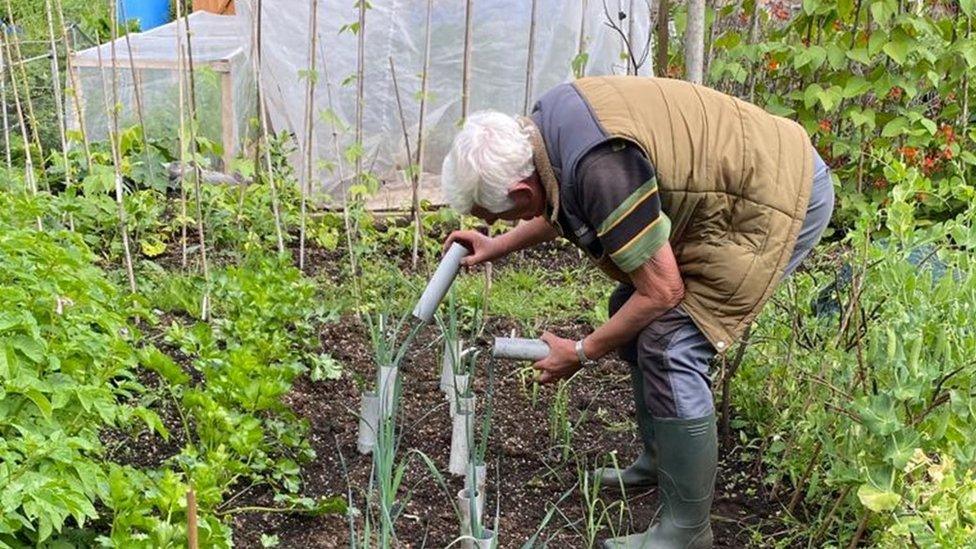Thames Water hosepipe ban extended despite rain
- Published
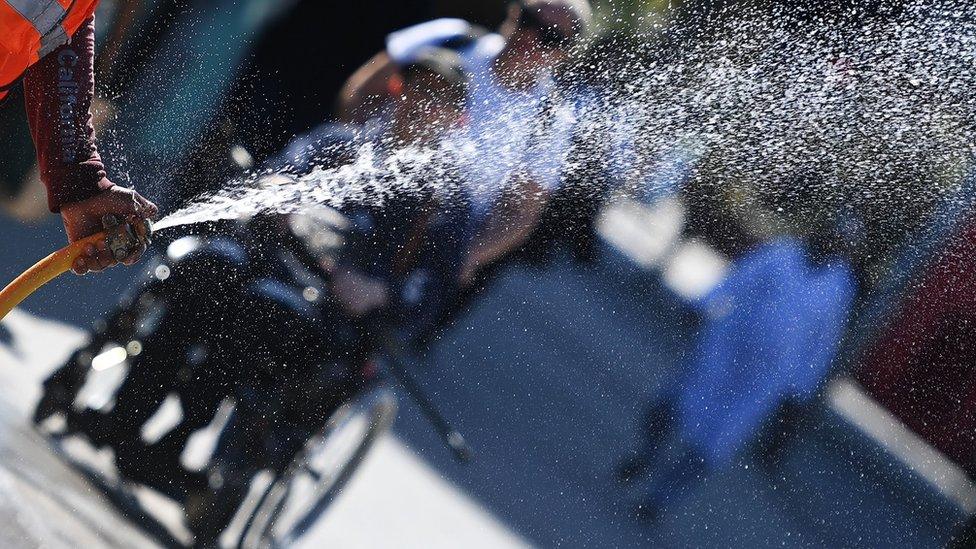
There is still much less water the region's rivers than usual, Thames Water says
Thames Water's hosepipe ban covering about 10 million customers in London and southern England is to remain in place.
The company said that "despite recent rain" there was still much less water in rivers than usual.
Therefore its "hosepipe ban is still in place to make sure there's enough water to go around", a spokeswoman said.
There is no set end date for the ban and "a lot more rain" is needed for water levels to return to normal.
The ban came into force on 24 August after one of the driest 12 months on record.
It means people are not allowed to use hosepipes to water gardens, wash cars and windows, or fill paddling pools.
Those found to breach the rules could be fined up to £1,000, external.
To explain the reasoning behind the extension and help people try to cut their water usage, Thames Water began delivering flyers to more than 3.5m households on Monday.
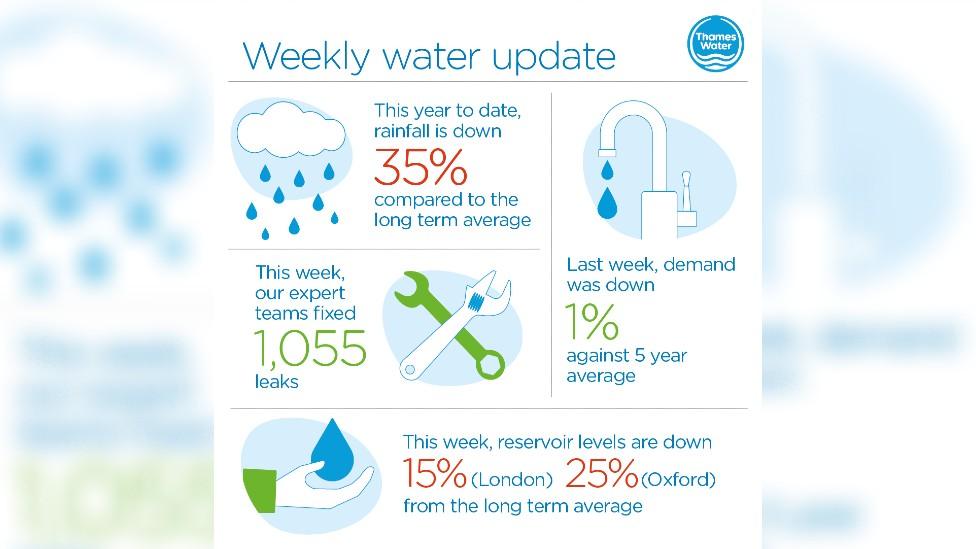
The firm began delivering leaflets to 3.5 million households to explain the extension to customers
It said that in the 12 months between September 2021 and August the country experienced below-average rainfall, with July being the driest since 1885.
This affected river levels, with those at Teddington in Richmond being at their lowest in August since 2005.
All this has left its reservoirs down by a quarter, Thames Water said.
On 30 August, the Environment Agency declared a drought for 11 of its 14 areas of England.
Thames Water was one of six water companies to impose a hosepipe ban.

Follow BBC London on Facebook, external, Twitter , externaland Instagram, external. Send your story ideas to hellobbclondon@bbc.co.uk, external
- Published17 August 2022
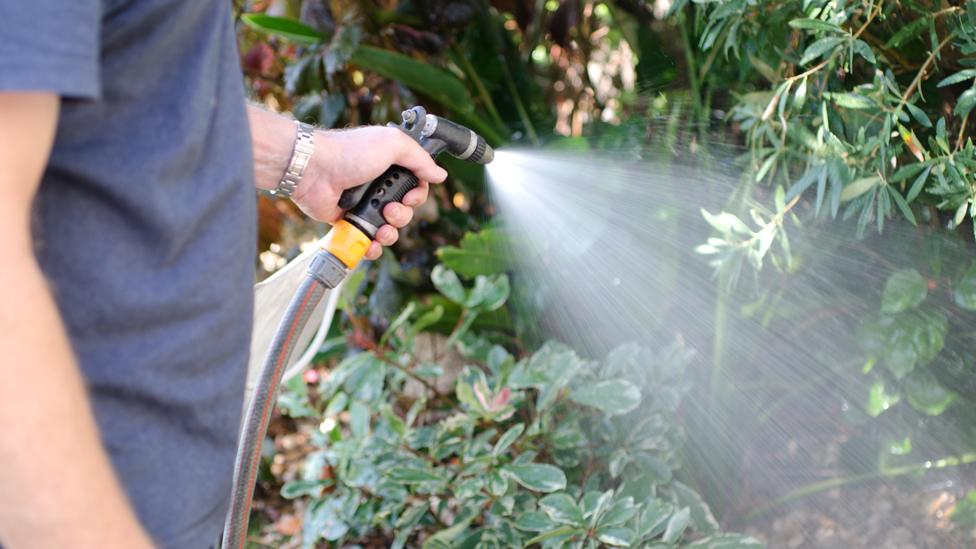
- Published15 August 2022
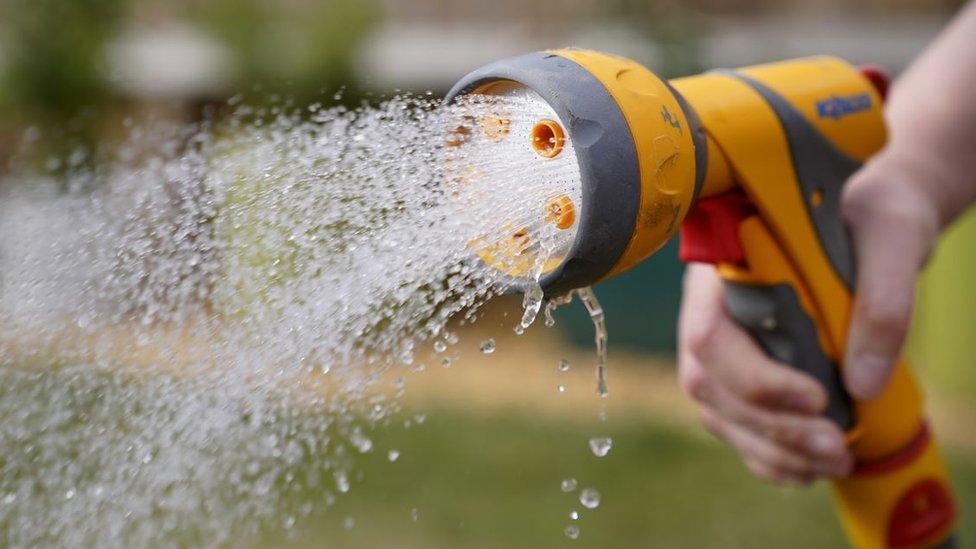
- Published5 August 2022
